Adorno's negative dialectic and so on
Brian O'Connor interviewed by Richard Marshall.
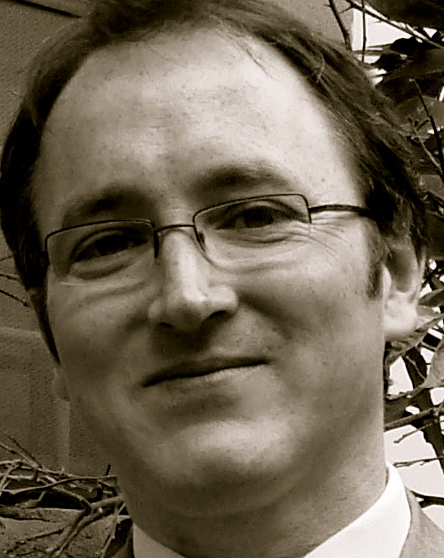
Brian O’Connorponders the appeal of philosophy, German Idealism, Adorno and his response, the idea of a damaged life, the catastrophe of the Nazi era, what there is about Adorno that drives Hegelians crazy, the conditions for understanding the social world, philosophy's historical situation, Adorno's negative dialectic, immanent vs transcendent criticism, Adorno's moral theory, his relationship to music, his relationship with Benjamin, self-constitution, autonomy and the foolishness of analytic/continental restrictions. They should sell postcards for this one...
3:AM:What made you become a philosopher?
Brian O'Connor:I enrolled as an undergraduate student of philosophy to complement my literature studies. Like so many novices I was quickly captivated by the power of Socratic thinking: that conceptual analysis and a few well-placed questions could, in the name of truth, subvert the social order. As you might expect, I no longer believe that philosophy has quite that capability. But philosophies that try to gain critical access to the beliefs that give key features of our social world their shapes remain for me among the most interesting of human endeavours. That’s not to say that there isn’t much to doubt in those philosophies. The topics to which I try to contribute as a scholar and philosopher are, I am sure, marked by the original experience of Socratic thinking.
There’s a more mundane aspect of the question, though. Being a philosopher today involves, perhaps even necessarily so, membership of a professional institution. Academic life, with the space it permits for reading, reflection and interaction, has appealed to me from the moment of my first contact with it.
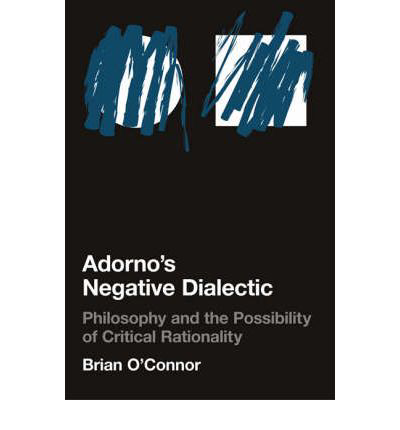
3:AM: You have written extensively on German Idealism and Adorno’s responseto this tradition. You think Adorno was wanting to do more than respond to German philosophy as an academic and that he wanted to conceptualise the ‘good life’. Before looking at how you read him, can you say whether you think this was a plausible project and how far you think he was successful?
BO:Adorno didn’t engage with the classical German tradition solely to assess the cogency of its arguments or coherence of its conceptualizations. Though that is a large part of what we find in his work. He believed that the kinds of rational norms that are specific to historical contexts are given formal expression in great works of philosophy. For example, Kant’s notion of autonomy is not to be construed as a timeless theory of human agency but one which rests upon assumptions about the scope of action that are specific to the modern world. A critical analysis of the Idealists, therefore, can allow us to see what conception of ‘rational life’ they rely upon. If the arguments of the philosophers in questions are consistently problematic, maybe, Adorno thinks, it’s because of the conception of life to which they’re committed. Recognizing those problems might just enable us, as your question suggests, to think about what the ‘good life’ really could be.
The difficulty of this project is obvious enough, though. How can one make good on the claims that reason has a history and that philosophies are marked by their historical contexts? Adorno was too intelligent a thinker to help himself out with historical reductionism. His acuity in identifying moments in pivotal philosophical arguments where assumptions, that could only seem natural to the philosophers in their contexts, skew the dynamic of those arguments are provocative and, for me, often persuasive.
3:AM:How should we understand what Adorno meant when he discussed the social world as a ‘damaged life’? How far was this a reaction to the times he lived through and was it an overreaction that can’t make a distinction between Nazi society and totalitarianism, and contemporary liberal ones?
BO:We could say that Adorno endorses the notion, that we consider broadly Aristotelian, that a well-ordered society provides us with wholesome and indeed happy ways of living. But, obviously enough, Adorno believes that we have anything but such a society: forms of human interaction are shaped by the supposedly all-consuming experience of self-preservation within capitalism. This produces coldness in people’s dealings with each other. Because of the particularities of German culture, according to Adorno, National Socialism could pose as a substitute for the sense of belonging lost through the capitalism driven rationalization of society. But it is a freakish social world. The coldness is not overcome, and togetherness is achieved through exclusionary myths. If we take the broadly Aristotelian picture as some kind of baseline, the life that Adorno describes is about as damaged as life can be.
It’s important to point out that critical theory’s worry about liberalism actually precedes the catastrophe of the Nazi era. There are familiar interpretations of liberalism as a theory primarily of the freedom of the ‘bourgeois’ actor rather than of the experience of life without stress or of substantive values about human dignity. At no time, however, is it lumped in with totalitarianism. Post-war, liberalism, in the vague forms in which it was generally conceived, was not perceived as a candidate for the solution to the forms of behaviour into which Germany in particular seemed so easily to slide.
3:AM:Was Adornoa Hegelian or an anti-Hegelian?
BO:In many respects he is a Hegelian: in a rather complicated way he is, as noted before, committed to the notion of the historical substance of reason. Furthermore, concepts like ‘dialectic’ and ‘mediation’ point us towards Hegel. Nevertheless Adorno has views of Hegel that drive most Hegelians crazy. He holds that Hegel offers us the most promising theory of experience of modern philosophy (as found in just a few pages of the Phenomenology). But he claims that Hegel’s philosophy rarely lives up to that theory, turning instead towards systematicity rather than the openness of negative experience. The answer to your question, then, depends on what one takes to be the defining features of Hegelianism. If, for example, it’s the unity of reason then Adorno is certainly opposed. If, again for example, it’s the dialectic of experience then not.
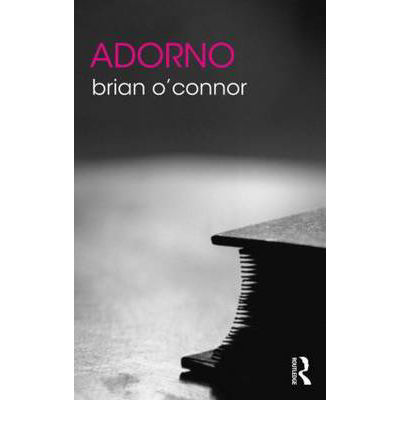
3:AM:Following on from this, can you say something about why you say this philosophical enterprise should be understood as a task involving epistemological normativity?
BO:Yes, though I’ll struggle to capture it concisely. One of the most impressive achievements of Adorno’s philosophy, I think, is found in his criticisms of what he takes to be the three central models of experience in modern philosophy: empiricism, idealism and phenomenology. In various ways each of these models, he argues, misconstrues the subject-object relation that forms the very idea of experience: respectively, rendering the subject passive, according the exclusive agency of experience to the subject, collapsing subject and object into some non-conceptual immediacy (that’s his criticism of Heidegger in particular, though he is no supporter of the allegedly naïve enterprise of descriptive phenomenology). Adorno wants to convince us that the apparent success of these positions is gained only by their use of ultimately incoherent conceptions, such as pure spontaneity or nonconceptual knowledge.
Adorno believes that he can provide a broadly satisfactory account of experience that has worked out the conditions in which, in a world of non-reified actors, subject and object are both understood as ‘co-constitutive’. Note, a different social world – non-reified – is required for the realization of experience in this satisfactory sense. Theories that take a different course are doomed not simply to be mistaken but to be incoherent. Adorno’s account of experience marks out the parameters within which non-distorted experience operates and those parameters are rational constraints on what we can coherently say about experience. I might add that it is this set of ideas that led me to attribute a version of transcendental theorizing to Adorno.
3:AM:Why did Adorno think non-critical philosophy misrepresented object/subject interaction? What’s at stake in this issue
BO:Here we come back to the question of philosophy’s historical situation. I am sure this will seem quite tendentious, but each of those paradigmatic accounts of experience considered by Adorno – empiricism, idealism and phenomenology as just discussed –embody, without realizing it, the broken relationships of subject to object or self to others within our social world. They theorize from within that broken world and present themselves simply as the truth about experience. Adorno’s anxiety is that their claims to truth somehow make ‘final’, by expressing it in the most abstract philosophical terms, was is in fact a damaged set of relations. Experience as co-constitution of subject and object is precluded by those theories.
What’s at stake is really huge. If any modern theory of experience turns out to be correct about the limits of possible experience then human relations really are atomized. The notion of co-constitution is baseless. And arguably the notion of moral – or at least non-instrumental – relations is thereby also baseless.
3:AM:Why do you think it important to consider his negative dialectic in isolation from the sociological specifics of his critical theory? And how should we best understand what his negative dialectic is?
BO:Handling the distinction between Adorno’s philosophical and sociological concepts is a tricky business as it’s important not to give the impression that for him one has pre-eminence over the other. Yet, evidently, Adornooften engages with purely philosophical material using manifestly philosophical analysis. The notion of the historical location of thought looms over all of what Adorno has to say about philosophy but understanding the historical dimension cannot and does not serve as a short-cut to drawing conclusions about those texts that Adorno selects for examination. If we make the decision that Adorno has some interesting philosophical things to say we have then to engage in the analysis philosophically in order to see where the strengths, weaknesses and potential of his arguments and claims lie. There really is a great deal of material that warrants that kind of scrutiny.
Adorno’s contributions may seem too general to make an impact on much of today’s debates about experience, even with regard to those discussions where there might be some likelihood of salience, such as the question of nonconceptual content. The impact of Adorno’s analysis, it seems to me, takes place in the space before the intricacies of any give theory of experience or knowledge are developed. Adorno would call this the ‘metacritical’ level. His analysis of epistemology, I believe, can inform anyone on how they might enter into any given position. I have certainly found that useful in my own efforts to makes sense of the strange theories of a number of contemporary American philosophers.
The name ‘negative dialectic’ is, one might say, a synecdoche. Part of Adorno’s philosophy is indeed a selective endorsement of Hegel’s notion of the negativity of experience: the dialectic. But that’s hardly all of his philosophy. It’s artificial to read everything he has to say as a corollary of that notion, as one can easily see from the wide-ranging contents of the book, Negative Dialectics.
3:AM:Does this link to the debate over whether Adorno was a friend of immanent or transcendent criticism? Finlayson wonders whether Adorno might be more of a transcendent friend than you say he is. Has he a point?
BO:Finlayson has teased this issue out more thoroughly than anyone else. He is surely right that Adorno is not as purely immanent as he often claims to be. This is pretty plain in the business of social criticism. My view, though, is that when it comes to the criticism of philosophy Adorno uses a largely immanent approach. In fact, that approach eventually licenses his own account of experience. He identifies incoherence within various target theories in terms that the authors of those theories might be expected to recognize as pertinent (I think Kant’s Refutation of Idealism is an influence there). That incoherence is instructive, though, in leading Adorno towards what he sees as his more satisfactory account.
3:AM:Is there a moral theory somewhere lurking in Adorno that would make him a moralist of some stripe – or would this be stretching?
BO:Not a stretch at all. That’s the question at the centre of much of the most recent Adorno scholarship. I think there’s a consensus that he is some kind of moralist, as you suggest, but there has yet to be agreement on what kind he is or the content of a moral theory he might hold to. My view is that Adorno restricts himself to specific interventions in the tradition of modern moral philosophy, offering us complicating considerations about the impulses that motivate us, the emptiness of universalism, the impossibility of moral certainty. That means that I don’t find an implicit general theory in his work, as some do.
The effort to understand what Adorno’s interest in moral philosophy might be involves an even greater degree of reconstruction of disparate statements than is usual within Adorno scholarship. That probably explains the lack of agreement I mentioned.
3:AM:Do you think it’s wrong to think Adorno doesn’t offer us things that are true and that his metacritique is merely negative?
BO:Again, a very difficult issue.
A contrast that helps us with that question is the critical theory of another philosopher of that generation, Herbert Marcuse. Marcuse offers us quite imaginable utopias from which the imperatives and pathologies of capitalism are absent. Nothing like that is found in Adorno. But there are fragmentary notes on what a better life might look like: the happiness of childhood, freedom from fear, reconciliation, the mimetic experience of art. None of these hints are platforms – Archimedean points, as he puts it – for social criticism. Indeed, these hints can sometimes seem quite personal, as speaking to Adorno’s own memories and hopes. They provide him with the stimulation not to accept that current arrangements can stand as the realization of true happiness and reconciliation.
I don’t believe that Adorno was some kind of quasi-ontological pessimist for whom the miserable exposure of irrationality is all that is left for us. Surely his philosophy is, as he puts is, a ‘melancholy science’. But exposure of what damages life might just, he thinks, help us to reimagine happiness and reconciliation in other terms. It’s necessarily vague as we should not, Adorno argues, limit our capacity to understand the present by measuring it against any determinate alternative.
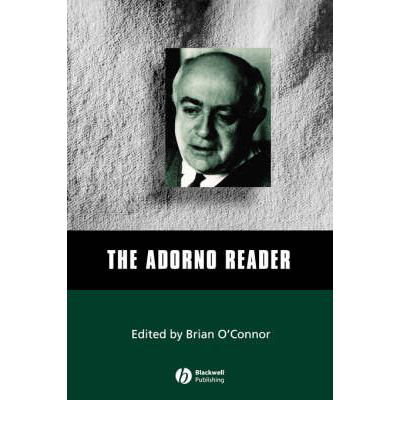
3:AM: He was a musician and wrote extensively and deeply on music didn’t he? What’s the connection between his philosophical writings and those on music? Are his insights still relevant? Many seem rather stuffy and conservative – even then he was attacking jazz and electronic music - and they don’t seem to have much to do with the contemporary music scene do they? Should we ignore him?
BO:Not much harm, I suppose, follows from ignoring any philosopher. Adorno was captivated by the classical German tradition and it wasn’t only jazz but much of the non-German tradition that fell foul of his normative narratives. (He’s unsympathetic reading for those who admire certain twentieth Russian composers.) There is, by the way, some worthwhile discussion on what Adorno was attacking under the heading ‘jazz’, though it’s unlikely that much can be done to rescue him on that front.
Having said that, can anyone seriously disagree with Adorno’s analysis of the industrially produced commodities of popular music? Those views seem as pertinent as ever.
The connection between the philosophy and music writings is complex. Adorno saw those writings as belonging to a single theoretical enterprise, which included the sociological specifics you asked about earlier. Some of the concepts that are discussed in the philosophical texts – such as dialectics and mimesis – also appear in the music texts. At no time, though, are works of music examples of anything antecedently established in his philosophy. Works and composers are considered in their own terms, frequently with musicological support.
3:AMHow seriously should we take his thoughts today about art and culture generally? Do you think they are too closely indebted to German philosophical traditionand too inflexible to understand the new conditions producing culture? And isn’t this a problem for someone theorizing modernity? Hasn’t modernity moved too far away from his theorizing? Has he become largely a figure of just historical interest?
BO: You are probably right to express those doubts, but I don’t have a developed position on this. Whether he captured the modernism of his own times is also contested.

3:AM:His relationship with Walter Benjamin - how important was it? Had they not written to each other as extensively as they did do you think Adorno would have developed his thinking in the direction that he did? Were subsequent collaborations and correspondences as important and if he were still around what might he be saying about the current mess the world's in?
BO:Incredibly important. WithoutBenjamin’sinfluence it is difficult to imagine Adorno’s emergence as an independent philosophical voice. I think we can say that Benjamin gave Adorno the resources with which to think about the idea of non-identity: that is, of irreducible particularity. From that idea many of Adorno’s main concepts follow.
The book that collects the correspondence between Adorno and Benjaminis among the most complicated things I’ve ever read. And in the philosophical literature I can think of nothing more poignant, not only because of the tragic abruptness of its conclusion. Adorno champions Benjamin’s earlier work against work Benjamin was trying to develop. (Strangely, Benjamin was not the only thinker or artist whom Adorno measured unfavourably against that thinker or artist’s former self.) His tone is not always kindly, and Benjamin’s replies reveal his vulnerability and emotional dependence.
I’m not sure Adorno could add very much to the critique of the present. I imagine, though, he might be more interesting than his successor Habermas who places so much hope in institutional reform.
3:AM:Your current preoccupation is self-constitution, autonomy and the challenges of idleness. Perhaps you could explain the link between autonomy and idleness, what’s at stake and what your position is?
BO:The philosophical tradition since Kant has in various ways tried to convince us that we realize ourselves most truly when we undertake some arduous process, virtuous in itself, of self-making or self-constitution. It’s an idea that’s foregrounded in the work of, strikingly, Sartre and Korsgaard. But I find this to be a worrying picture of how we do lead our lives, large parts of which – if we are lucky – are filled with non-telic and contented idleness. There is probably more at stake in this than I am yet in a position to persuade you of. At this point I want to expose the bias in philosophical argument that follows from the assumption that a supposedly ‘rational’ life is one marked by usefulness and self-preoccupied busyness. In such a life contingent experiences are eventually excluded by being controlled within a governing self-narrative. This rationalist assumption is commonly present in moralizing discussions of what kinds of lives we ought to lead. Philosophers should know better than to allow that assumption not only to go unchallenged but to give it the status of nature.
3:AM:Do you think of yourself as doing continental philosophy and whether the continental/analytic philosophy divide means anything to you?
BO:To my bemusement some have perceived my work as the effort of an analytic philosopher to tidy up critical theory. When it comes to questions of the self and experience, which is what I work on more and more, I think it’s foolish for philosophers to restrict the kinds of ideas they will draw upon to those of one side or the other.
3:AM:And finally, apart from your own books, are there five you could recommend to readers here at 3:AMwho might want to delve further into this philosophical world?
BO:At the centre of my work on Adorno is his (1) Negative Dialectics. It’s arguably the most reflective work in the entire tradition of German philosophy. (If it seems a tough place to begin then I’d suggest the more accessible lecture courses in which he was preparing for Negative Dialectics, in particular, History and Freedomand Lectures on Negative Dialectics.)
The quality of work in Adorno studies is really impressive and there are numerous works I could recommend. However, I’d like to acknowledge the importance of several books that helped me to gain a foothold in Adorno’s philosophy many years back:
(2) Susan Buck-Morss, The Origin of Negative Dialectics.
(3) Freidemann Grenz, Adornos Philosophie in Grundbegriffen: Auflösung einiger Deutungsprobleme(Suhrkamp, 1974).
(4) Gillian Rose, The Melancholy Science: An Introduction to the Thought of Theodor W. Adorno(Macmillan, 1978).
The criticisms of contemporary philosophy I have been developing place me in a less crowded space. I’m appreciative of philosophers who are genuinely independent of any particular school, critical and with a sharp eye for the foundational commitments of the theories they are discussing. With all of that in mind, I value:
(5) Raymond Geuss, Outside Ethics(Princeton UP, 2005), a collection of brilliant essays.
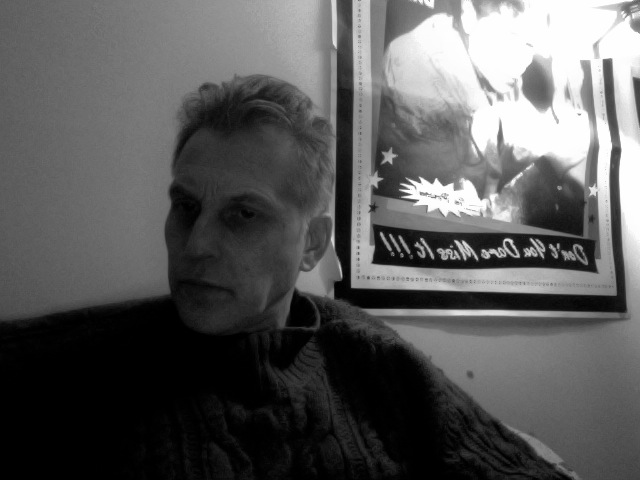 ABOUT THE INTERVIEWER
ABOUT THE INTERVIEWER
Richard Marshallis still biding his time.